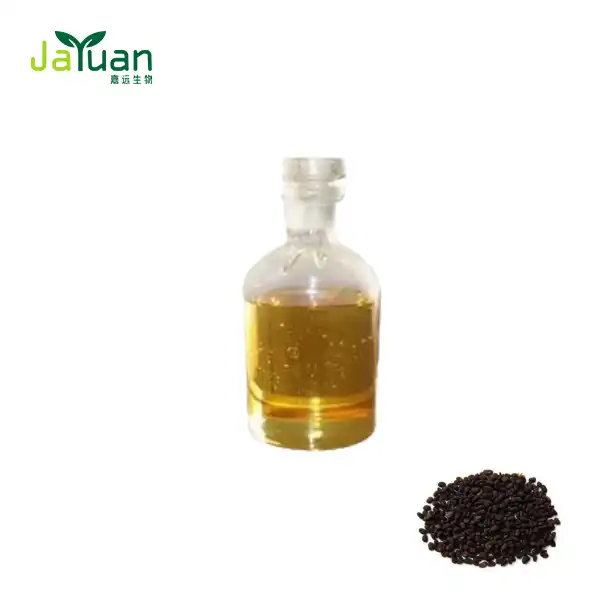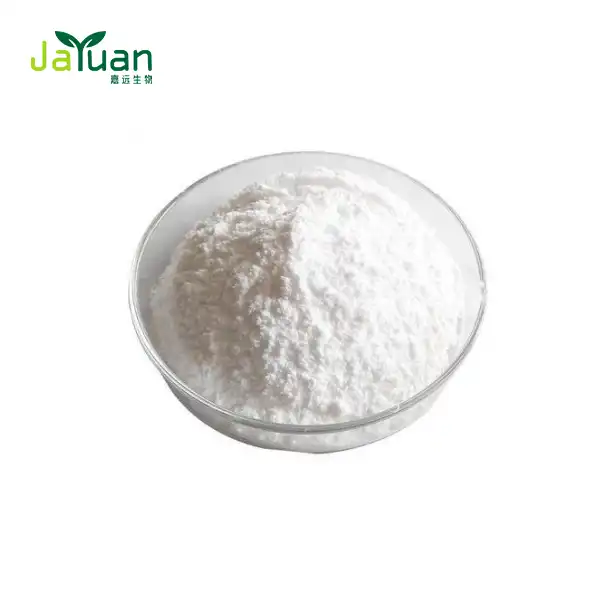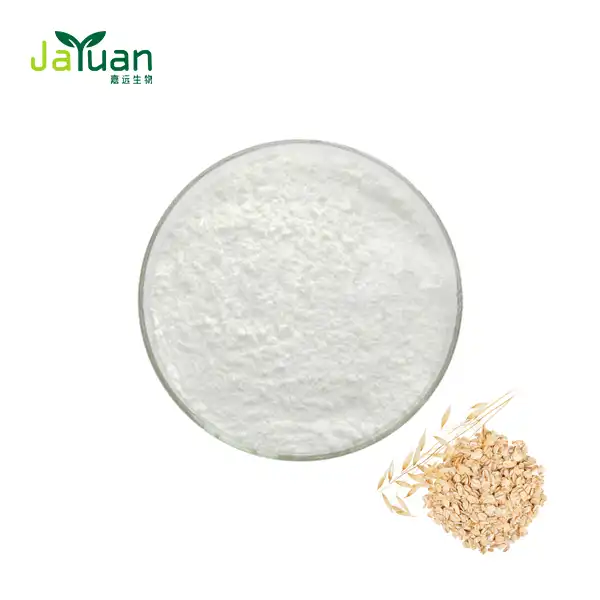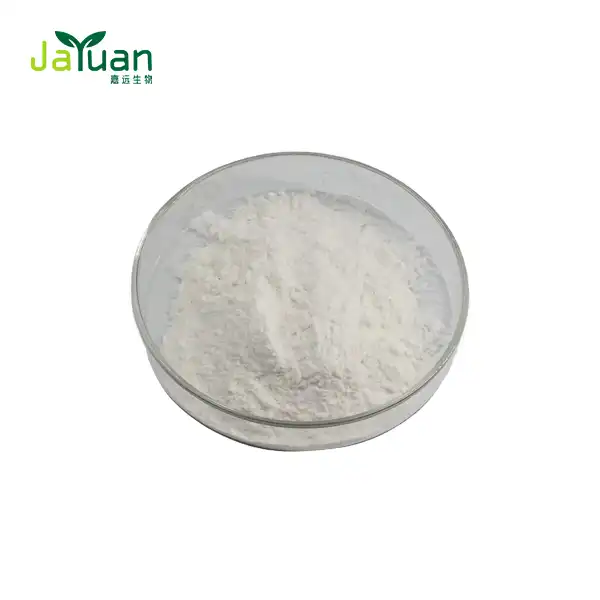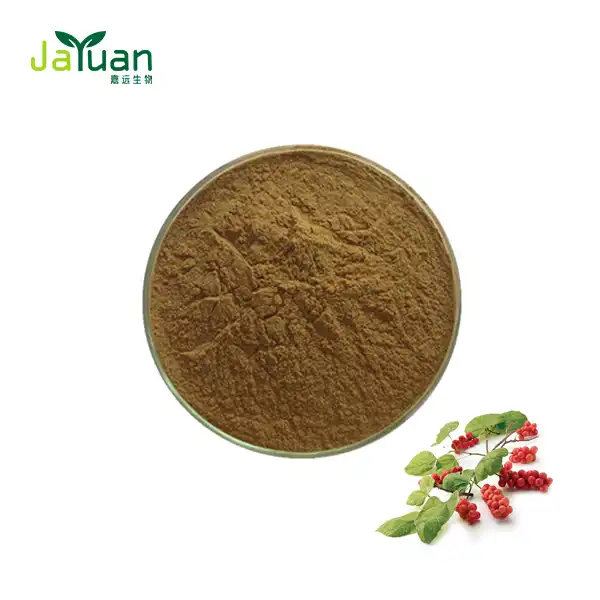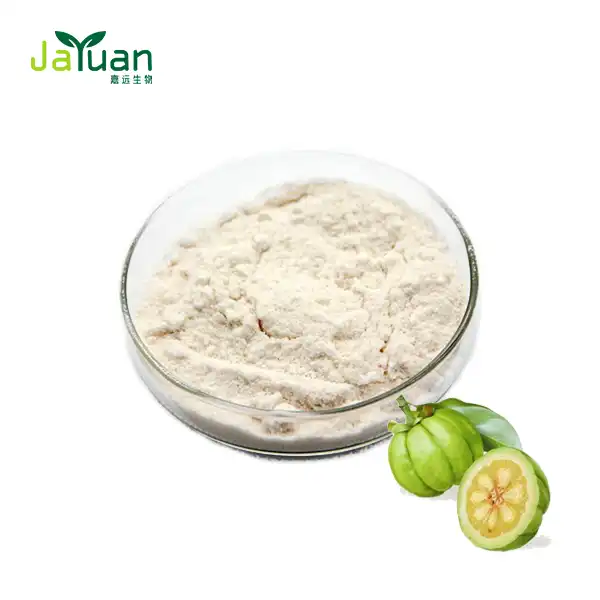Bioavailability and Absorption of Lutein Powder: A Comprehensive Review
Lutein, a powerful antioxidant and carotenoid, has gained significant attention in recent years due to its potential health benefits, particularly for eye and skin health. As the popularity of lutein powder supplements continues to grow, understanding its bioavailability and absorption becomes crucial for maximizing its benefits. This comprehensive review delves into the factors affecting lutein absorption, natural ways to enhance its bioavailability, and the best dietary sources for optimal absorption.
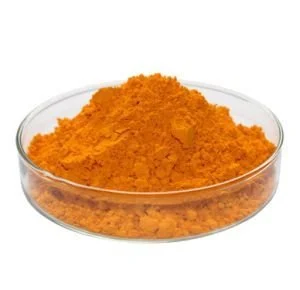
Factors Affecting Lutein Powder Absorption
The absorption of lutein powder is influenced by various factors, which can significantly impact its effectiveness. Understanding these factors is essential for optimizing the benefits of lutein supplementation:
1. Formulation and Particle Size
The formulation of lutein supplements plays a crucial role in their absorption. Microencapsulated or emulsified forms of lutein have shown enhanced bioavailability compared to standard formulations. Additionally, smaller particle sizes increase the surface area available for absorption, potentially improving uptake in the digestive system.
2. Fat Content in the Diet
Lutein is a fat-soluble compound, meaning it requires the presence of dietary fats for optimal absorption. Consuming lutein supplements with a meal containing healthy fats can significantly enhance its bioavailability. This is why many lutein powder supplements are formulated with oils or recommended to be taken with food.
3. Presence of Other Nutrients
The absorption of lutein can be influenced by the presence of other nutrients in the diet. For example, the concurrent intake of other carotenoids like zeaxanthin may enhance lutein absorption through synergistic effects. Conversely, high doses of beta-carotene might compete with lutein for absorption, potentially reducing its bioavailability.
4. Individual Factors
Individual variations in gut health, age, and overall nutritional status can affect lutein absorption. Factors such as intestinal pH, the presence of certain enzymes, and the overall health of the digestive system play roles in how efficiently lutein is absorbed and utilized by the body.
5. Dosage and Timing
The amount of lutein consumed and the timing of supplementation can influence its absorption. While higher doses may lead to increased blood levels of lutein, there's a saturation point beyond which absorption efficiency decreases. Splitting doses throughout the day or timing supplementation with meals may optimize absorption.
Enhancing Lutein Powder Bioavailability Naturally
Improving the bioavailability of lutein powder can be achieved through various natural strategies. These methods focus on optimizing the conditions for lutein absorption within the body:
1. Pairing with Healthy Fats
Incorporating healthy fats into your diet when consuming lutein supplements can significantly boost absorption. Options include:
- Avocado
- Olive oil
- Nuts and seeds
- Fatty fish
These fats not only enhance lutein absorption but also provide additional health benefits.
2. Cooking Methods
While lutein is often consumed in supplement form, understanding how cooking affects lutein content in foods can help maximize intake from dietary sources. Gentle cooking methods, such as steaming or light sautéing, can actually increase the bioavailability of lutein by breaking down cell walls and making the compound more accessible.
3. Combining with Synergistic Nutrients
Certain nutrients work synergistically with lutein to enhance its absorption and effectiveness. Consider combining lutein supplementation with:
- Vitamin E: An antioxidant that may protect lutein from oxidation
- Zinc: Supports the transport and utilization of lutein in the body
- Omega-3 fatty acids: May enhance lutein absorption and work synergistically for eye health
4. Optimizing Gut Health
A healthy digestive system is crucial for efficient nutrient absorption, including lutein. Strategies to improve gut health include:
- Consuming probiotic-rich foods or supplements
- Increasing fiber intake to support beneficial gut bacteria
- Staying hydrated to maintain optimal digestive function
5. Mindful Supplementation
When using lutein powder supplements, consider these tips for optimal absorption:
- Take supplements with meals containing healthy fats
- Follow recommended dosages to avoid overwhelming absorption mechanisms
- Choose high-quality supplements from reputable sources to ensure purity and potency

Best Dietary Sources of Lutein for Optimal Absorption
While lutein supplements are widely available, incorporating lutein-rich foods into your diet can provide additional benefits and enhance overall absorption. Here are some of the best dietary sources of lutein:
1. Leafy Green Vegetables
Leafy greens are among the richest sources of dietary lutein. Top choices include:
- Kale
- Spinach
- Collard greens
- Swiss chard
- Turnip greens
These vegetables not only provide lutein but also offer a range of other beneficial nutrients and antioxidants.
2. Yellow and Orange Fruits and Vegetables
Certain yellow and orange produce items contain significant amounts of lutein:
- Corn
- Orange bell peppers
- Squash
- Pumpkin
- Cantaloupe
3. Egg Yolks
Egg yolks are an excellent source of lutein, with the added benefit of containing fats that enhance absorption. The lutein in egg yolks has been shown to have higher bioavailability compared to many plant sources.
4. Pistachios
Among nuts, pistachios stand out as a good source of lutein. They also provide healthy fats, making them an ideal snack for supporting lutein absorption.
5. Herbs and Spices
Some herbs and spices contain notable amounts of lutein:
- Parsley
- Basil
- Oregano
While typically consumed in small quantities, these can contribute to overall lutein intake when used regularly in cooking.
6. Zucchini and Broccoli
These versatile vegetables are not only nutritious but also provide a good amount of lutein. They can be easily incorporated into various dishes to boost lutein intake.
Incorporating a variety of these lutein-rich foods into your diet, along with healthy fats, can significantly enhance the bioavailability and absorption of lutein. This approach, combined with mindful supplementation when necessary, offers a comprehensive strategy for maximizing the benefits of this important carotenoid.
Conclusion
Understanding the factors that affect the bioavailability and absorption of lutein powder is crucial for maximizing its health benefits. By considering formulation, dietary factors, and individual health status, it's possible to enhance the effectiveness of lutein supplementation. Combining supplement use with a diet rich in lutein-containing foods and healthy fats provides a synergistic approach to optimizing lutein intake and absorption.
As research in this area continues to evolve, staying informed about the latest findings on lutein bioavailability can help individuals make more informed decisions about their supplementation and dietary choices. Whether through carefully chosen supplements or thoughtfully prepared meals, optimizing lutein absorption is a valuable step towards supporting eye health, skin protection, and overall well-being.
For high-quality lutein powder bulk and expert guidance on incorporating lutein into your product formulations, don't hesitate to reach out to our team at Xi'an Jayuan Bio-Tech. Our commitment to quality and innovation in natural plant extracts makes us your ideal partner in developing lutein-enhanced products. Contact us at sales@jayuanbio.com to explore how we can support your lutein supplementation needs and help you maximize the benefits of this powerful carotenoid for your customers.
References
- Johnson, E. J. (2014). Role of lutein and zeaxanthin in visual and cognitive function throughout the lifespan. Nutrition Reviews, 72(9), 605-612.
- Bohn, T. (2008). Bioavailability of non-provitamin A carotenoids. Current Nutrition & Food Science, 4(4), 240-258.
- Nagao, A. (2014). Absorption and function of dietary carotenoids. Forum of Nutrition, 69, 30-42.
- Zaripheh, S., & Erdman, J. W. (2002). Factors that influence the bioavailability of xanthophylls. The Journal of Nutrition, 132(3), 531S-534S.
- Granado, F., Olmedilla, B., & Blanco, I. (2003). Nutritional and clinical relevance of lutein in human health. British Journal of Nutrition, 90(3), 487-502.
- Roodenburg, A. J., Leenen, R., van het Hof, K. H., Weststrate, J. A., & Tijburg, L. B. (2000). Amount of fat in the diet affects bioavailability of lutein esters but not of alpha-carotene, beta-carotene, and vitamin E in humans. The American Journal of Clinical Nutrition, 71(5), 1187-1193.

